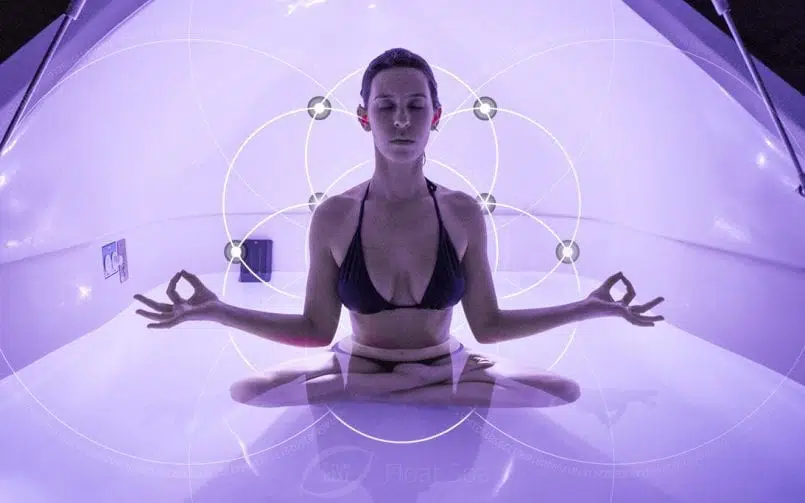For many of us, meditation is one of those elusive, mystical arts that is often married with the phrase, “I’m not good at it.” In actuality though, what does being “good” at meditating really even mean?
Let’s start by defining what meditation is in the first place. Meditation is an acquired skill of the mind, one that takes dedication to continuously practice and one that reminds us to be present within each precious moment. Meditation can be guided by a variety of controlled breathing techniques, repetition of mantras and postural exercises to deepen one’s sense of presence and awareness. In meditation, we can become hyper aware of these internal landscapes, the pulls of our emotional tides and the mental patterns that we’ve grown accustomed to following. So, why do we need to meditate?
In our modern world, the majority of society is overly caffeinated, hyper stimulated by technology and desensitized to the benefits of stillness. Enter flotation therapy. Floating provides the perfect opportunity for a person to have minimal distractions and be able to focus on deeply relaxing their body and mind. In a traditional float setting, there will be no light and no sound to distract the person from going inwards. Our float pods are a little different being equipped with technology so there is the option to turn the lights on, if needed, and the option to plug in a phone or iPod to listen to music while you rest. Many people find they are able to meditate with more ease when they listen to audible tones like binaural beats or mantras. A mantra is a word or sound that is continuously repeated to keep the mind free from outside distractions. Our mind has millions of neural passageways that are constantly firing off information to all different areas of the body. Mantras help to keep the mental fluctuations at bay. The goal of meditation is not to completely “shut off” the brain, but rather sit back with a  neutral awareness of the thoughts that pop into your mind while you’re meditating.
neutral awareness of the thoughts that pop into your mind while you’re meditating.
Being “good” at meditating doesn’t mean that all is calm when you sit in stillness. Sometimes there’s an internal whirlwind for us to face. Being “good” at meditating means you keep your consistency even amidst chaos in your daily life and you don’t give up when it becomes challenging. Meditation doesn’t have to be an arduous, complex task that takes hours to complete. It can be simple and lasting only a few minutes. Meditation is about the presence of your consciousness in the moment, not ever about a destination or defined goal.


